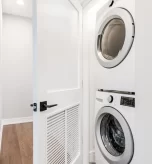How Choosing A Home Inspector Vehicle
Choosing a qualified and trustworthy home inspector is crucial when you’re buying or selling a home. Here are some key things to look for when choosing a Home Inspector Vehicle:
· Credentials and experience:
Look for a home inspector who is licensed or certified in your state and has experience inspecting homes similar to the one you’re interested in. You can ask for references from previous clients or check online reviews to get an idea of their experience and expertise.
· Knowledge and thoroughness:
A good home inspector should have a comprehensive understanding of all the systems and components in a home, and be thorough in their inspection process. They should be able to identify any potential problems or safety hazards and provide detailed, unbiased reports on their findings.
· Professionalism:
A professional home inspector should be courteous, respectful, and punctual. They should also have the necessary equipment and tools to perform a thorough inspection, including a moisture meter, infrared camera, and electrical testers
By considering these factors, you can choose a qualified and trustworthy home inspector who can help you make an informed decision about your home purchase or sale.
Read More: Ultimate Guide to Choosing the Perfect Home Inspector Vehicle
Home Inspection for Rental Property
A home inspection is an important process for rental properties, as it can help identify any potential issues that could affect the safety and well-being of tenants. Here are some key considerations for a home inspection for a rental property:
· Hire a licensed home inspector:
It’s important to hire a licensed home inspector who is trained to identify any potential safety hazards and code violations. This will give you peace of mind knowing that the property has been thoroughly inspected and any issues have been identified.
· Schedule the inspection before tenants move in:
Ideally, the home inspection should be conducted before tenants move in. This will give you time to address any issues that are identified before the tenants take occupancy.
· Inspect all areas of the property:
The home inspection should cover all areas of the property, including the exterior, interior, and all systems such as electrical, plumbing, and HVAC. This will ensure that the property is safe and in good condition for tenants
Time of Mandatory Home Inspection
The timing of a mandatory home inspection can vary depending on the specific requirements and regulations of the local government or jurisdiction. In some cases, a mandatory home inspection may be required before the sale or purchase of a property, while in other cases, it may be required at regular intervals to ensure the property meets certain safety or building code standards.
Here are some common instances where a mandatory home inspection may be required:
· Before purchasing or selling a property:
In many jurisdictions, a mandatory home inspection is required before a property can be sold or purchased. This inspection is usually conducted by a licensed home inspector, and it provides the buyer with valuable information about the condition of the property.
· Rental property inspections:
In some areas, landlords are required to have their rental properties inspected on a regular basis to ensure they meet certain safety and building code standards. This helps to ensure that tenants are living in safe and habitable conditions.
Overall, the timing of a mandatory home inspection will depend on the specific regulations and requirements of the local government or jurisdiction. It’s important to research and understand these requirements to ensure that your property meets all necessary safety and building code standards.
Notice for the Inspection
When conducting a home inspection, it’s important to provide proper notice to the occupants of the property. This notice should include the date and time of the Home Inspector’s Vehicle, as well as any other relevant information.
Here are some key considerations for providing notice for a home inspection:
· Give sufficient notice:
In most cases, it’s recommended to provide at least 24-48 hours’ notice before conducting a home inspection. This will give the occupants of the property enough time to prepare for the inspection and make any necessary arrangements.
· Provide details about the inspection:
In your notice, be sure to include the date and time of the inspection, as well as any specific areas of the property that will be inspected. If there are any particular requirements or preparations that need to be made, such as moving furniture or unlocking certain doors, be sure to include this information in the notice as well.
Read More: Advice For Protecting Your Home From Water Damage
· Be respectful and courteous:
It’s important to approach the occupants of the property with respect and courtesy when providing notice for a home inspection. Be clear and direct in your communication and avoid any confrontational or aggressive language.
· Follow local laws and regulations:
Depending on the jurisdiction, there may be specific laws or regulations governing how much notice must be provided for a home inspection. Be sure to research and follow these requirements to avoid any legal issues.
In summary, providing proper notice for a home inspection is an important consideration to ensure that the occupants of the property are aware of the inspection and can prepare accordingly. By following these guidelines and being respectful and courteous, you can help ensure a successful and stress-free home inspection process.
Final Words
Thank you for allowing me to assist you with your questions about home inspections. Remember that home inspections can be a valuable tool for ensuring the safety and well-being of occupants of a property, whether it’s a rental or a home you’re planning to purchase. Be sure to hire a licensed and experienced home inspector and follow local regulations regarding inspections and notices. If you have any further questions or concerns, don’t hesitate to ask. Key Property Inspection Group is a leading provider of home inspections.





